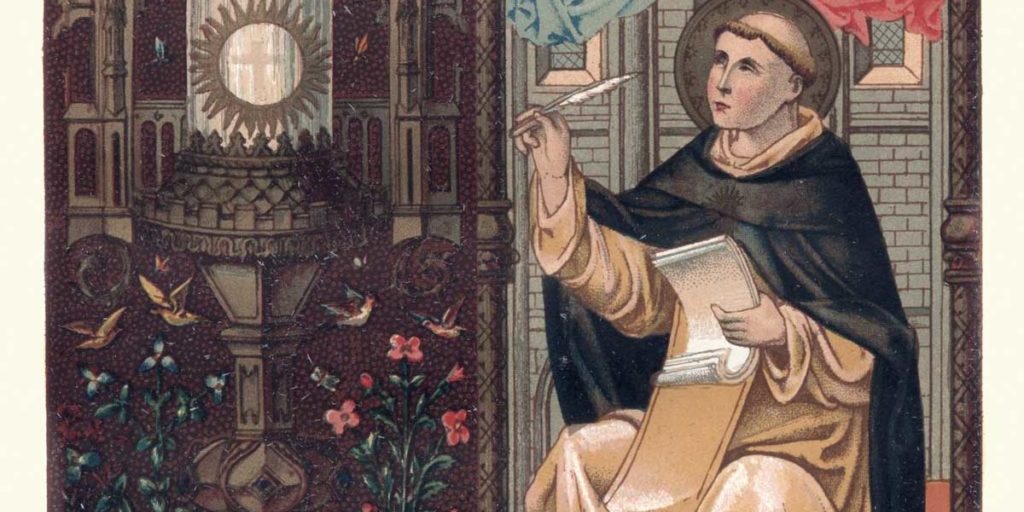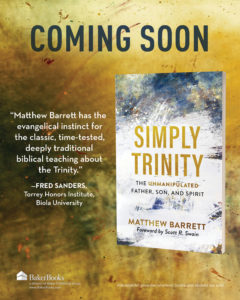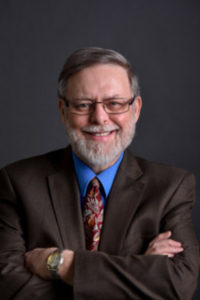
Philosophy for Understanding Theology: The Metaphysics Behind the Reformed Confessions
I n my last article I suggested that the infiltration of relational theism into Evangelical and confessional theology documented by James Dolezal in his book, All That is in God, is a matter of conservative theology taking on board ideas and assumptions that were widespread in 20th century liberal theology. The concept of God as being in time along with us as part of the cosmos and as being changed by the creation in a two-way relationship is a serious departure from the mainstream of classical orthodoxy as it endured from the early church fathers to the 19th century.
n my last article I suggested that the infiltration of relational theism into Evangelical and confessional theology documented by James Dolezal in his book, All That is in God, is a matter of conservative theology taking on board ideas and assumptions that were widespread in 20th century liberal theology. The concept of God as being in time along with us as part of the cosmos and as being changed by the creation in a two-way relationship is a serious departure from the mainstream of classical orthodoxy as it endured from the early church fathers to the 19th century.
In the trinitarian classical theism of the Nicene Creed and the Reformation confessions God is the simple, eternal, immutable, self-existent, transcendent Creator who nonetheless speaks and acts in history in Israel and Jesus Christ. Today the doctrine of God is often historicized in such a way that God becomes part of the evolving cosmos and interacts with it in much that same way as the pagan gods of the ancient Near East did. Western theology is sinking back into the mythological conception of God that characterized Israel’s neighbours and against which the prophets polemicized.
“Immutable” and “Merciful”
This situation creates many problems. One is that many late modern theologians simply cannot make sense out of the tradition when it affirms both God’s immutability and God’s ability to act in history to judge and save. It seems contradictory to many people today to even contemplate saying such a thing. They find themselves advocating a novel concept of God in which the Divine being is composed partially of an unchanging essence and partially of a changing element. How this comports with the Westminister Confession’s statement that God is “without body, parts or passions” (WCF 2.1) is never satisfactorily addressed. Sound theology contains many paradoxes, but it cannot be built on contradictions. Click To Tweet
This is what I mean when I speak of the difficulty many have today in understanding the confessions of the Protestant Reformation. How can the Confession (like the 39 Articles and other Protestant confessions) speak of God as both “immutable” and also as “merciful”? How can he be “without passions” but yet “hating all sin”? It is difficult to reconcile these contradictory evaluations of the eternal being of God in himself if passions are simply attributed to God in the same way they are attributed to creatures. Sound theology contains many paradoxes, but it cannot be built on contradictions.
Classic Christian Metaphysics
Classical orthodoxy made judicious use of paradox and mystery, as well as a finely-tuned account of the creator-creature distinction, a doctrine of analogical language and careful distinctions between degrees of knowledge available to the creature both through general and special revelation. Over the centuries, particularly in the struggle to define the doctrines of Trinity and Incarnation, the tradition developed certain metaphysical doctrines that enabled such distinctions and provided language in which the doctrine of God could be articulated. These metaphysical doctrines were developed primarily out of the doctrine of creatio ex nihilo. We could refer to a body of such metaphysical doctrines as the “metaphysics of Nicaea” or as “scholastic realism” or simply as “classical Christian metaphysics.”
The body of metaphysical doctrines to which I refer is not large, but it includes ideas that are essential to the exposition of creedal orthodoxy. For example, it includes an account of the participation of the natures of things in universals, which is what makes them the kinds of things they are. Universals are understood to be real and as ideas in the mind of God. Included in this body of metaphysical doctrine is also an understanding of existing things as created according to a rational principle by God through his Logos and therefore knowable, in principle, by the human mind because of its creation in the image of God. Fundamental to the whole set of doctrines is the distinction between the world as changing flux in which everything is a mix of potential and actuality, on the one hand, and God as the unchanging, unactualized actualizer, and thus First Cause of the world, on the other. Out of this grows a distinction between primary and secondary causation and an understanding of the teleological directing of history toward the creation’s fulfillment in Christ. The reason it is so hard to understand the Reformation confessions today is that the metaphysical framework in which the authors of those confessions worked has not only been lost; it is no longer even understood. Click To Tweet
The Reformed orthodoxy of the post-Reformation era used scholastic realism in its articulation of the doctrines of God and creation. The Protestant confessions made sense within this context and no tension was felt between the simple, immutable God and the effects of his will on the creation. However, the Enlightenment era introduced a crisis into Protestant orthodoxy because the radical thinkers of the Enlightenment built on the nominalism and mechanism that had been gaining ground in the early modern period and added the materialism of radical French thinkers such as d’Holbach to that witch’s brew. By the late 18th century, the time was right for Hume’s outright rejection of traditional metaphysics and, tragically, Kant swallowed Hume’s skepticism hook, line and sinker. Most modern theology fails to challenge this rejection of classical metaphysics.
The reason it is so hard to understand the Reformation confessions today – 200 years after Kant – is that the metaphysical framework in which the authors of those confessions worked has not only been lost; it is no longer even understood. What is needed is to recover the history of the development of classical Christian metaphysics. Here is my suggested outline of a course that does not (so far as I know) exist, but which would facilitate the recovery of classical metaphysics by those who want to work in the tradition of trinitarian classical theism.
This course could be called “Philosophy for Understanding Theology” and its purpose would be to understand the metaphysics that the post-Reformation scholastics took for granted in writing the Protestant confessions of the seventeenth century. It would cover the following topics:
- The Birth of Philosophy
- The Presocratics
- Socrates, the Sophists and the Early Plato
- The Mature Plato
- Aristotle
- The Platonic Tradition from Aristotle to Augustine
- The Second and Third Century Fathers and Greek Philosophy
- The Fourth Century Fathers and Greek Philosophy
- Augustine’s Christian Platonism
- Augustine’s Influence on the Middle Ages
- Thomas Aquinas and Aristotle
- Scholastic Realism and Post-Reformation Reformed Orthodoxy
Philosophy and Theology
We need to get serious about knowing (1) the metaphysical assumptions behind the confessions, (2) the history of those metaphysical ideas and what work they do in theology and (3) the implications of denying or altering them. Click To Tweet You will notice that the list of topics includes both philosophy and theology. One of the biggest problems in history of philosophy courses is that modern definitions are imposed on ancient thought even though they do not really fit there. If you had asked Augustine or Thomas what they were doing they could distinguish between Christian Theology (Sacred Doctrine for Thomas) and philosophy. But they did both together. It is important to see that the pro-Nicene fathers of the fourth century also did both together. Is the doctrine of Divine simplicity metaphysics or theology? It certainly is a philosophical doctrine but it plays an important role in pro-Nicene theology. If one wishes to understand theology in the first millennium of church history, one needs to understand the philosophy used in theology.
You will notice that the course goes up to Thomas Aquinas and then skips the Reformation itself. If we know any historical theology today that is the period we are most likely to have some familiarity with. This course is not an attempt to offer a comprehensive survey of all theology and philosophy during the many centuries from Thales to the seventeenth century. The goal is more modest, yet ambitious enough. It is to describe the metaphysics operating in the background to the writing of the confessions. Thomistic thought, including metaphysical ideas, was important for 17th century Protestant theology.
People are constantly asking me what to read to get up to speed in philosophy and it is not easy to give a simple answer. The problem is that I would estimate that the minimum level of effort needed to understand the philosophy needed to do theology is roughly equivalent to the amount of effort most seminarians put into leaning Greek. It is not an unattainable goal but it certainly goes far beyond reading a couple of books and a few blog posts. We need to get serious about knowing (1) the metaphysical assumptions behind the confessions, (2) the history of those metaphysical ideas and what work they do in theology and (3) the implications of denying or altering them. Seminaries that take the study of the Reformation confessions seriously and want to promote knowledge of the history of Protestant theology need to step up to the plate.

